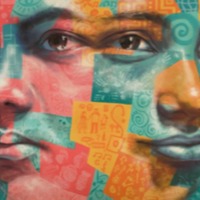
I ran away from Eritrea seven months ago to avoid the army service. I intended to find refuge in Sudan, but when I arrived in Sudan, crossing the border by foot, with several other Eritreans, some Bedouins arrived with a vehicle and kidnapped us. Some of us succeeded in running away but they managed to kidnap me along with others. They locked us up in a small house in Kassala, beating us daily with a stick. They threatened me "if you will not pay us $35,000, you will be our woman.” I gave them phone numbers of my family members, but they told the kidnappers that they don't have a possibility to raise such amount of money. I was locked there in a dark room for four months. I discovered that I got pregnant. We received very little food and I was beaten constantly. I had a miscarriage. It took my family long months to raise the money and I was taken with others to Sinai. There they requested $3,400 more. It took three more months for my family to raise the additional sum. We were released near the border of Israel with a group of about 30 Eritreans. The Egyptian soldiers shot at us on the way. Some of us got frightened and returned back to the Egyptian side. We arrived to the giant new fence on the Israeli border and we were not able to cross it. We waited there in the sun for long days with no food and water. There were Israeli soldiers on the other side who kept on telling us to go back. There were several children with us who could not suffer it any longer and attempted to go back. The Egyptian soldiers shouted to the children "you cannot come back unless you bring us the women in your group." We refused to go back, knowing why they want us back.
At the end, the Israeli soldiers came to our side, forced many of us to go to the Egyptian soldiers and let the women in. It was easy for them to push the people back since they were starved for many days and too weak to resist. In prison, where we are now, they treat us very well. A woman from the UNHCR came and told us that we can apply for asylum. I had a meeting with a judge and a translator to Tigrinya, Frowini. She asked me if I agree to go back to Eritrea and told me "You will be in this prison for three years. Didn't you hear about it?" I told her that if I go back I will be imprisoned for running away from the army service but she did not answer. The judge said that until there will be a solution, I will stay in prison.
Narrative as featured in the report ‘Tortured in Sinai, Jailed in Israel: Detention of Slavery and Torture Survivors under the Anti-Infiltration Law’ made possible by The PME Foundation









